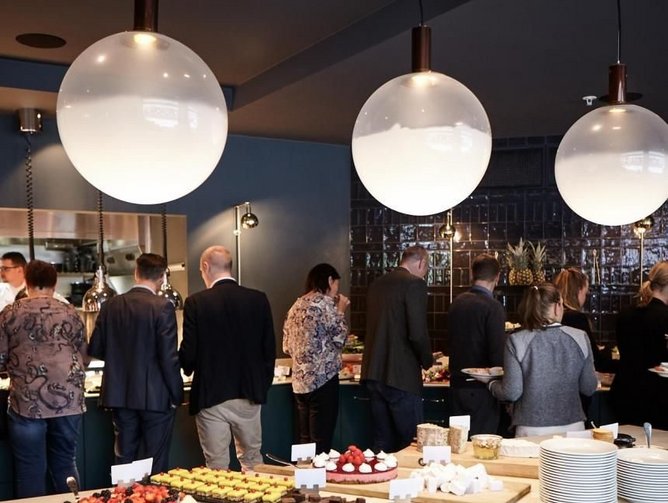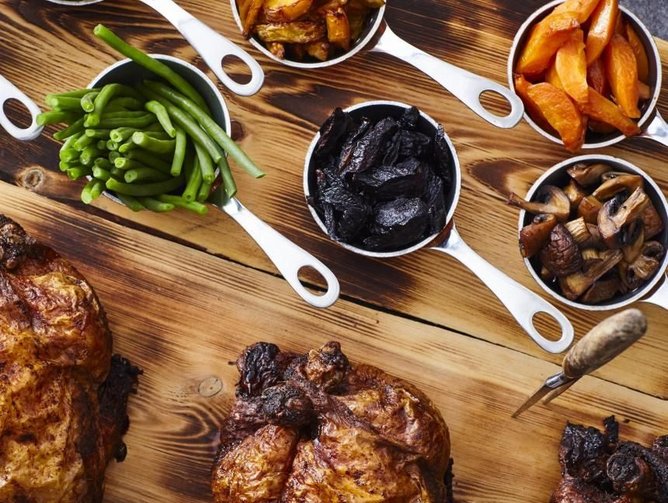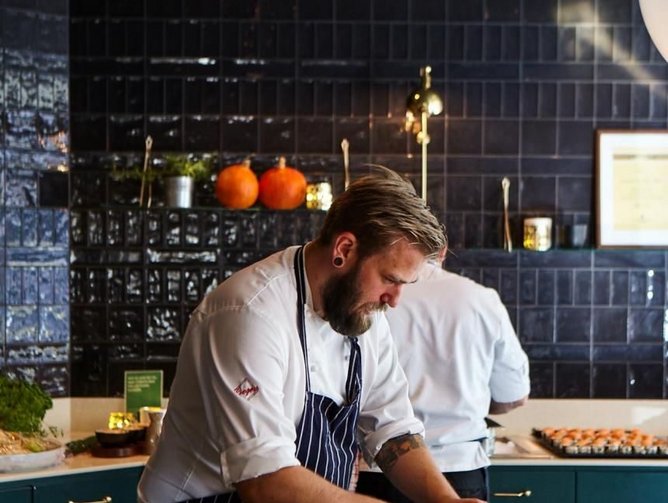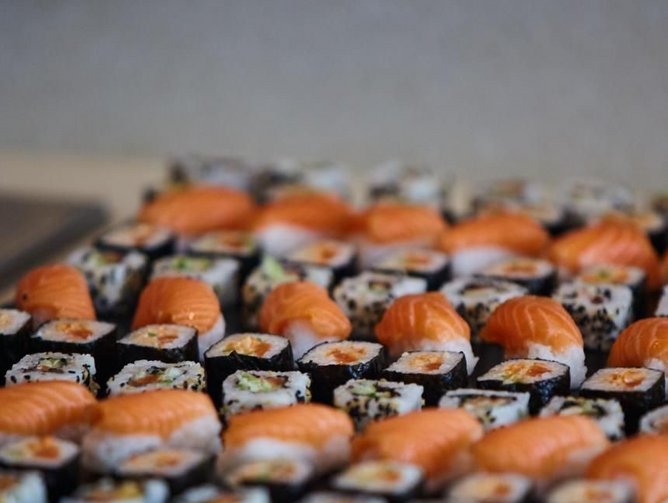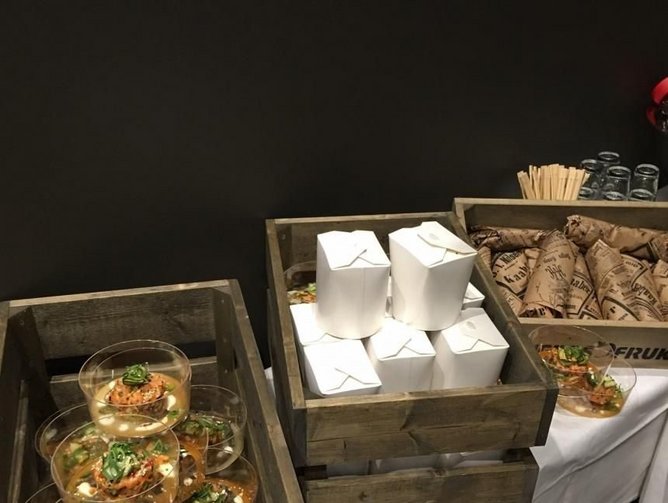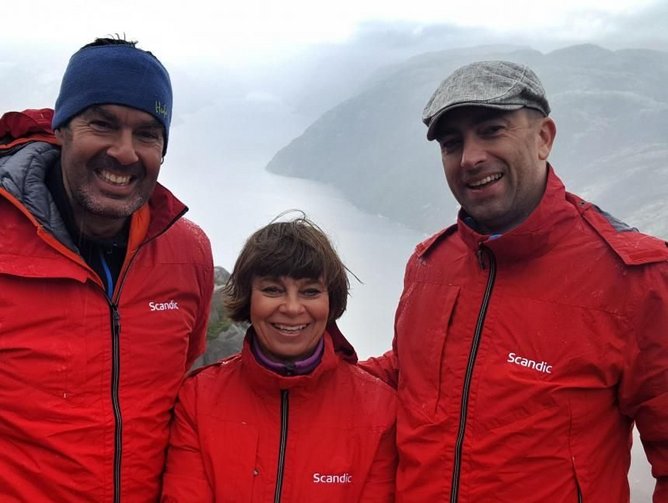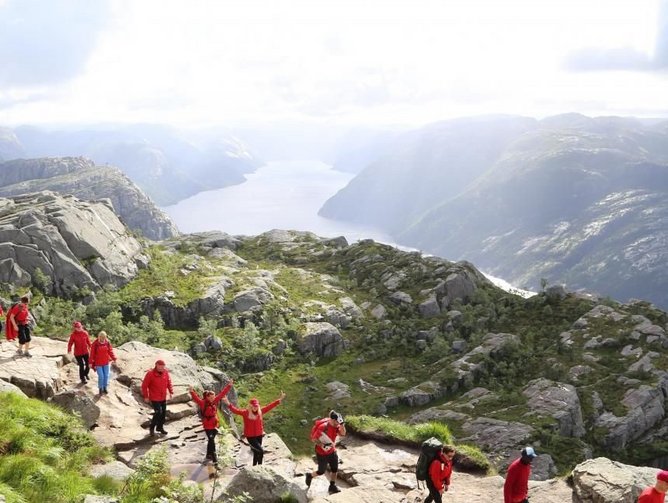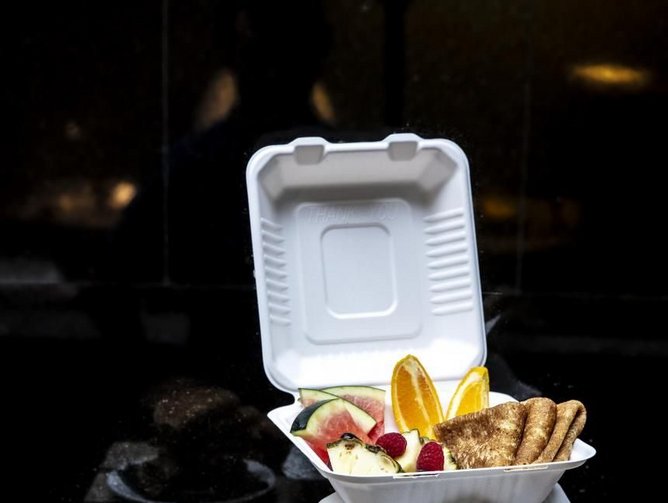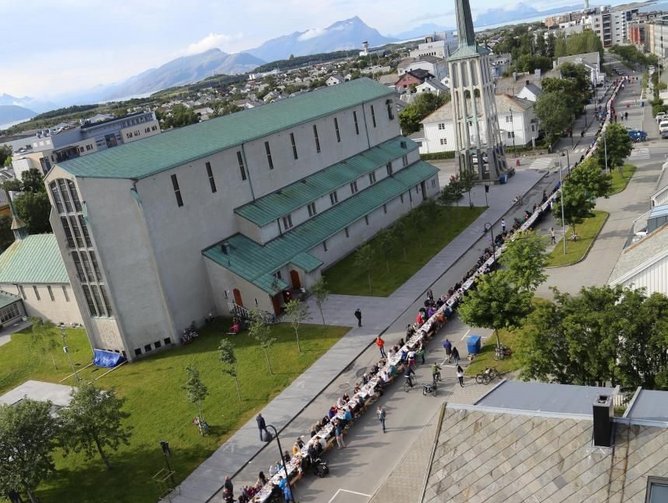Scandic Hotels is embracing digitisation in order to reduce food waste and transform the guest experience
When it comes to breakfast, there are few hotels that know more about achieving continuous success than Scandic Hotels in Norway. With the hotel chain having consistently won the prestigious Twinings Best Breakfast competition, including 12 victories out of the last 14 awards at its Scandic Nidelven hotel, it’s clear Scandic is revolutionising the way it provides breakfast. “Unique for the Scandinavian hotel market, a rich and varied breakfast buffet is usually included in the room price. As a consequence, providing the best breakfast offering is a key factor in order to attract new guests and keeping existing guests loyal. What better way to do so by offering hotel guests the very best breakfast?” asks Morten Malting, Director of Food & Beverage of Scandic’s Norwegian operations.
In order to achieve this, Scandic has developed and introduced a new breakfast offering together with its top chefs and key suppliers. By emphasising high-quality local produce, healthy products made fresh to order, often by chefs present in the breakfast restaurant, and acknowledging the importance of the service element with things as simple as greeting every guest with a ‘good morning’, Scandic has become the undisputed breakfast champion in Norway.
Embracing key suppliers
Since Malting became Director of Food & Beverage in 2011, Scandic Hotels Norway has undergone quite the transformation. Over the past seven years, the firm has seen its total number of hotels increase from 16 to 85 with food and beverage sales also rocketing. Currently, Scandic is not only one of the biggest hotel chains in Norway, but also ranks among the biggest players in the restaurant industry.
“The journey of the quality of our F&B offering has been amazing,” says Malting. “Initially, some hotels performed better than others, but today we are an entire chain of hotels recognised for great food and beverage experiences, and we have been successful in creating a variety of local restaurant concepts with one thing in common: we target the locals. We have managed to do this through high-quality local produce and by focusing on telling the unique stories to our guests. By doing this we have been successful in attracting both local guests and our core business, hotel guests.”
Malting mentions restaurant Nova at the newly reopened Hotel Norge by Scandic as an example of how the company is embracing local love by selecting the absolute best local produce and having the former Bocuse d`Or winner Ørjan Johannessen as the Chef Advisor – Johannessen also happens to be a local chef who began his career as a Scandic apprentice. Another example is restaurant Bruket at Scandic Lillestrøm. Both restaurants have become the preferred choice for locals and hotel guests alike, thanks to their ‘local love’ strategy. “In Norway, there used to be a common impression that hotel restaurants were of subpar quality and reserved for hotel guests only – I’m glad we are changing that impression. Now, even food critics recommend our restaurants,” says Malting.
Malting emphasises the importance of maintaining relationships with suppliers and believes this has enabled Scandic to produce a better product. “My strategy has always been very clear that when we were a small company it was important to choose suppliers where we become their most important customer,” he explains.
Malting points towards key suppliers such as Albert Idsøe (A. Idsøe), which has provided high quality meat products to Scandic, and Haugen Gruppen, an important supplier within the food and beverage industry, as reasons why the company has maintained its success.
“I think Albert Idsøe were crucial as our meat suppliers when we were small. Even though it’s quite a small, family-run company, I believe our partnership with Albert has helped us tremendously with the quality of our products. They currently have three signature products on our award-winning breakfast: breakfast sausage, ham and liver paté. Our guests often comment on social media about the fantastic liver paté. All recipes are made in cooperation between Scandic and A. Idsøe chefs,” Malting explains.
“Haugen Gruppen, the supplier behind the ‘Twinings Best Breakfast’ competition, has really helped improve the overall breakfast offering in Norway,” he continues. Every year independent judges visit more than 400 breakfast buffets to identify and crown the breakfast champion. “This competition has really helped us by creating an awareness and interest in hotel breakfast among the public, and Scandic has taken the number one position in Norway. It means that when people ask which hotel chain has the best breakfast, most people will answer Scandic. It really drives business for us.”
Scandic Hotels Norway continues to work with all of these companies thanks to the significant success of each partnership, but Malting is careful to add that although good relations are important, neither supplier nor customer should become too comfortable and it’s vital to ensure a strict tendering process is maintained for every contract. “I think it's a fine balance between having a really great network, partnerships and relationships – however, these relationships can never become too close because I think it’s critical that you keep your eyes open to see if there are alternative offerings on the market that can potentially do a better job,” he says.
“That’s why we have our own procurement department, both on group level but also here in Norway,” he continues. “They pretty much run the tenders, but we decide together. I think it's important to consider each company as not just a supplier but also someone that cooperates with us well as a partner. They must have a really great product and be able to offer the best price.”
Sustainability through digitisation
In 2016, Scandic was one of the first Norwegian hotels to utilise an app called ‘Too Good To Go’ which helps eliminate food waste by offering leftover food to the public at discounted prices. Malting strongly believes the new app has been an excellent initiative that has proved mutually beneficial to both Scandic and its customers. “The system allows us to get money for food that would otherwise go in the bin. At Scandic, we like to say that we make our food with heart and passion. It belongs in the stomach rather than the bin,” says Malting. So far more than 70,000 meals have been ‘saved from the bin’ from Scandic hotels in Norway alone.
Scandic has also embraced another digital solution called ‘Winnow Solutions’, a system which connects a device to a weight in order to measure leftover food from a buffet or a customer’s plate, affording Scandic an in-depth look at exactly how much is being wasted. The daily and weekly reports from the solution enable Scandic’s head chefs to produce the right amount of food each day and decrease food waste.
“If you really want to embrace sustainability through cutting down on overproduction, you have to start at the beginning,” explains Malting. “You have to buy the right quantity, you have to spend the right amount of time on production, and you have to serve the right portions so that you really avoid leftovers. That’s what we’re aiming for.” In fact, Scandic Hotels Norway has signed a trade agreement with the agriculture and food department whereby the hotel chain has committed to cutting its food waste by 20% by 2020. So far, a 10% reduction has been achieved, and 80 tonnes less food waste is created annually – this is equal to about 125,000 meals.
Growth through strategic acquisitions
In recent years, Scandic has made significant acquisitions in a bid to strengthen its position as the leading hotel chain in the Nordic region. The company acquired the Norwegian hotel chain Rica Hotels in 2014, as well as Finland-based Restel in late 2017 in moves to drive Scandic forward. Malting believes the decision to purchase Rica, among other things, was key in allowing Scandic to revolutionise its breakfast. “Rica Hotels were very famous for their breakfast so when we acquired them, we actually integrated Rica into Scandic, and looked very carefully at how they handle breakfast.
“We took the best from Rica and the best from Scandic and we turned it into an award-winning breakfast. We have over 140 items on our breakfast buffet and work lots with local products. We really encourage the hotels to find local products from nearby, so that guests can enjoy the storytelling aspect of the products too”, says Malting.
Another key element for Malting is how the hotels are connecting with their guests.
“I think the breakfast has a lot to do with the service level, the visible chefs who make the omelette or eggs to order and how we greet our guests with a “good morning”. Breakfast is also a great occasion for hotel managers, or even the general manager, to take an hour each morning to serve coffee or tea and at the same time chat with guests and create an informal arena to receive feedback on the overall hotel experience or on the breakfast offering. Breakfast is often the last impression a hotel guest has of a hotel before checking out, and therefore an important element of a stay to make a good overall impression.”
Having achieved such considerable success with its breakfast offering, Malting points to Scandic’s mentality of ensuring that every customer is catered for regardless of dietary requirements. This is a part of Scandic’s legacy as a pioneer of accessibility and creating hotel experiences which every guest can enjoy, regardless of disability or specific requirements. Citing the aim to achieve ‘a better morning to everyone’, Scandic has introduced allergy-friendly local products to every breakfast buffet in a specific section. “Even though I don’t have any food intolerance myself, I was a little bit irritated that it’s always really low-quality products on offer for those who do. It’s always affecting the gluten-free or the lactose intolerant person, so they never have a great food experience when they visit hotels or restaurants,” says Malting. “At Scandic today, our guests can enjoy great tasting allergy products on our Food for All section, across all our hotels in the Nordics.”
Future aspirations
Looking ahead to the future, Malting believes Scandic must continue to prioritise the guest experience in order to sustain its position as the leading hotel chain in Norway.
“At Scandic, we are always working to be guest-centric. It’s all about the guest experience and we always make sure the guest comes first. We work hard to make everything as seamless as possible so that it’s easy for you to go on a mobile app to book your room or your restaurant; because we know that the digital journey is really important for us moving forward,” he explains.
“I think it’s important for Scandic to lead the way. We are a leader when it comes to sustainability and have been since the early 1990s. We are also a leader when it comes to healthy food and food intolerance. If you don’t take each of these elements – health, food intolerance and sustainability – seriously, then people aren’t going to choose to stay with you in the future. You could say that sustainability’s part of the Scandic DNA.”
